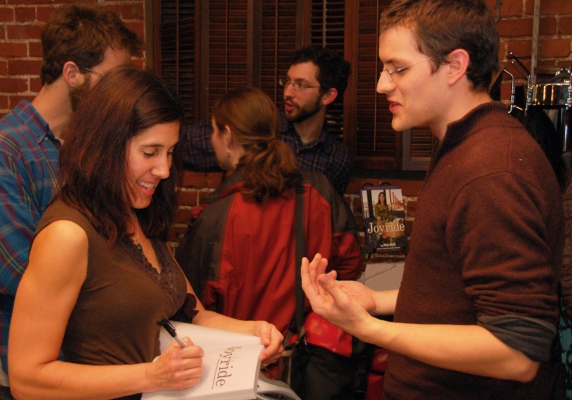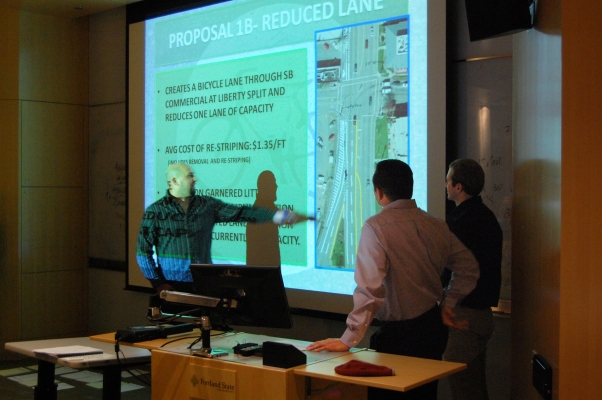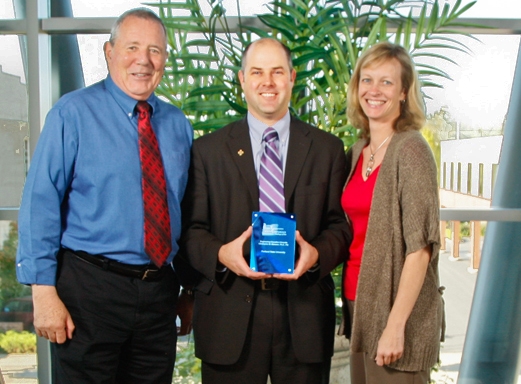As a bicycle advocate in the early 1990s, Mia Birk was young, idealistic and unaware of the struggles she would face, she told a Eugene audience, with many of those attending in much the same position Birk once found herself in. Birk spoke at the “Movers and Shakers: Connecting People and Places” series presented by LiveMove, the University of Oregon transportation and livability student group.
Birk’s story started in her native Dallas, where her family drove everywhere, even across the street. “It never occurred to us to walk, and it never occurred to us that this was anything but normal.”
When the lifestyle left her overweight and unhappy, Birk found a way out through bicycling. She came to Portland to spread that happiness as the city’s bicycle coordinator in 1993.
It wasn’t so easy, Birk said, and took battles that went far beyond bikes. Opponents emerged quickly from all sectors; it took a while for allies to coalesce.
“Bicycling doesn’t exist on its own,” she said. “You need really sensible land use policy so you can choose bicycling. Good transit is really critical; really good neighborhoods with local schools and bicycle transportation—they all go hand in hand.”
Even the best bike lanes and separated paths won’t get everyone on a bike, Birk said. European cities with high ridership use the carrot-and-stick approach combining incentives for bicycling and disincentives for driving...
Read more


